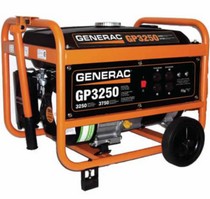Guide To Home Generator Purchasing - Size, Fuel, and Installation
A wide variety of situations could leave your home without electricity, and that's one reason why buying and installing a home generator is so important. If you live in an area that's prone to extreme weather, the equipment is essential.

Weathering the harsh cold of winter or sweltering heat of summer without the ability to keep your home comfortable and prevent food from spoiling is a full-time job when you're without a generator. Choosing the right one for your home, however, can be a daunting task. Here are a few places to start:
Determining size
Depending on the number and type of appliances you own, you may have to invest in a larger generator to have enough power to keep them running during a power interruption. A generator-sizing calculator will help you find the right model for your needs.
Before you can determine what size home generator you need, you must decide which appliances you want to keep running during an outage. For example, you may want to keep the power connected to the following:
- Radio
- Stove
- Refrigerator
- Furnace
- Security System
- Smoke Detector
- Freezer
- Sump Pump
- Central Air Conditioner
Determining your wattage needs
For home use, a 2,000-watt standard generator is usually more than enough if the equipment will be used only as a backup when a storm disrupts electricity. A portable electric home generator can also be ideal, depending on the needs of your home. When you're choosing a generator, be sure that you have a good idea of how much power you'll need, should you lose electricity service.
Standby generators are permanently installed outside your home, and are wired directly into the electrical system to automatically restore a degree of power during a blackout. Portable generators are more versatile, and include 120-volt outlets to power appliances plugged directly into the generator.
Types of home generators
There are two basic types of home generators: automatic standby generators and portable generators.
- Automatic standby generators automatically manage the power needs of the entire house by switching to backup power during an outage and automatically switching off when power is restored
- Portable generators can be used while camping or on a job site, as well as during a power outage.
Fuel types
Almost all generators will use propane, natural gas, diesel, or gasoline. Each fuel type comes with its own set of advantages and disadvantages.
- Gasoline. Gasoline is a fuel that's very common and easily obtained. However, it is highly flammable, can only be stored for about a year in quantities small enough to avoid safety risks, and isn't always as efficient as other fuels.
- Natural Gas. Natural gas is an unlimited fuel resource that burns clean, and generators designed to use natural gas tend to be quieter. During a major natural disaster, though, natural gas service can also be interrupted. In addition, the power output of natural gas generators can be up to 30 percent lower than those that use gasoline.
- Propane. Propane is clean-burning and quiet, with a long shelf life. Relying on propane means you have to keep pressurized cylinders in stock, however, and that may be more expensive than other fuel options.
- Diesel. Diesel is the least flammable fuel option for your electric home generator, but it can be in such high demand during widespread outages that it's difficult to obtain. Diesel also only has a shelf life of approximately two years.
Additional considerations
Whole house or essential circuit coverage - Homeowners can choose among several levels of power. Would you like to have lights and power in your entire house during an outage, or are you only concerned with being able to run essential appliances?
Installation - Many jurisdictions require permits for the installation of generators. Verify what you need with your municipality, and they will also advise you on how to install a generator and if there are any special installation requirements for your area. The safest location for a backup generator is outside, near your building, but in an urban environment that's sometimes not possible.
A final decision on how to install a generator deals with the transfer switch. After the power goes off, and your generator starts up, you have to transfer the circuits from the dead supply to the generator voltage. A transfer switch can do this automatically or you can get a manual version. An automatic switch transfers the load to the generator and back without human intervention.
Ready to Compare Home Generators Price Quotes?